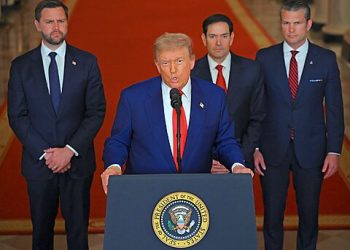In an August 26 letter to the House Judiciary Committee, Meta CEO Mark Zuckerberg admitted what many of us already knew: the federal government repeatedly tried to pressure social media companies into censoring Americans’ First Amendment speech. The letter exposes the challenges of addressing such censorial government demands, especially given the disappointing recent Supreme Court decision in Murthy v. Missouri.
The letter discusses several issues but it is worth focusing on the paragraph dealing with the pressure Meta felt from the government in which Zuckerberg states:
“In 2021, senior officials from the Biden Administration, including the White House, repeatedly pressured our teams for months to censor certain COVID-19 content, including humor and satire, and expressed a lot of frustration with our teams when we didn’t agree. Ultimately it was our decision whether or not to take content down, and we own our decisions, including COVID-19 related changes we made to our enforcement in the wake of this pressure. I believe the government pressure was wrong, and I regret that we were not more outspoken about it.”
Zuckerberg is saying two things here. First, government pressure was wrong, it happened repeatedly, and it had an impact on Meta’s content moderation decisions. Second, Zuckerberg is noting that the government did not actually force Meta to take these actions and so the decisions that were made, even if made under pressure, were ultimately Meta’s decisions. Meta has the right to host the kinds of speech it wants to host, allowing or removing speech that different parts of society will disagree with.
Unlike other governments that have direct power to weigh in on the speech and content moderation decisions of tech companies, the US First Amendment prevents our government from engaging in direct censorship. And so Zuckerberg’s letter is addressing this muddy area where the government pressures a company to suppress otherwise protected speech but cannot force it to do so. The challenge under our current legal jurisprudence is determining at what point government communications cross the line from being informational or persuasive into being threatening or coercive.
In Murthy v. Missouri, the Supreme Court looked at this very issue of government jawboning and added another potential hurdle—that of establishing standing. Only parties that could show that government demands directly led to the suppression of their speech could establish standing. This makes it difficult for the average citizen to establish legal standing, and it mostly falls to the pressured and coerced party to sue, i.e. the social media companies in this case.
But this leads to the next interesting part of Zuckerberg’s letter, where he states, “I feel strongly that we should not compromise our content standards due to pressure from any Administration in either direction—and we’re ready to push back if something like this happens again.” Zuckerberg is declaring that they are ready to combat government pressure.
But are they? As just mentioned, in the wake of Murthy, the court restricted standing most clearly to the platforms that directly faced such government pressure. So Zuckerberg, as CEO and majority owner of Meta, has standing to sue.
In this letter, he also says he believes the government wrongly jawboned his company and influenced its decisions. If Zuckerberg does “feel strongly” about this, then the conclusion is that Meta should sue the Biden administration for jawboning. Meta has a lot of good lawyers, many of whom I worked alongside for years in considering content moderation decisions, so they certainly know this too.
Why haven’t they sued then? Because the core problem of jawboning is that the threatened or pressured party has so much to lose by going toe to toe with the government, even if the threats are not made clear. The government is making an offer that these businesses can’t really refuse, at least some of the time. Yes, some victims turn on the mafia, but often at great cost.
Asking social media companies to respond with courage to repeated, secret demands made by the government is to ask them to face the government’s wrath in exchange for doing the right thing. They get little immediate credit for it, but they bear the consequences of the government becoming antagonistic or just less helpful in other areas of business.
So is Meta “ready to push back?” I suspect its spine is stiffer today and it would rebuff many advances made against it. But given that Meta is not willing to use its powerful position to resist the government and protect its speech and the speech of its users in the courts today, it is only a matter of time before Meta and other social media companies again find themselves facing irresistible government pressure.
Such a situation is untenable. Americans’ First Amendment right to speak online should not be contingent on whether a social media company feels brave enough to face down the vast regulatory and police powers of the government. Policymakers must explore additional safeguards to prevent the government from crossing the line.
The easiest solution is to require transparency into government demands of social media companies. Put simply, every time the government makes a request of a company, they would be required to report it. This would then generally be made public so that we know when and what the government is up to. By making these communications public, the government will be more hesitant to overstep its bounds and the public can be more confident that the government is not suppressing their speech behind closed doors.
Other solutions could build on this transparency requirement, such as establishing private standing in the courts so that it is easier for individuals to challenge any government suppression that occurs on social media platforms.
I’m happy to see social media companies condemn government overreach. But we need new policies to protect companies and their users’ speech online from government censorship.
















